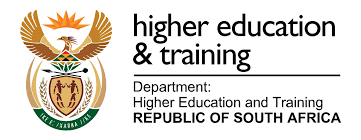Opinion Column
Any business that grows despite fierce competition will do so provided it has meaningful customer service policies in place, something that TVET curriculum rarely addresses. Students are taught content that relates to operations in their chosen field of study, which is good, but not how to interact with possible clients and customers.
Every country has its own challenges that are unique, South Africa is no exception to the fact. In South Africa people have a history of trusting white owned businesses because of many reasons. Some of the reasons are that many white owned businesses are franchises, others are not franchises but they are managed professionally with key personnel in place to ensure smooth business control.
In the townships and traditionally black rural areas things are different. In these areas you have to think twice before you can make business with black business owners. If you want build a house in a village the chances are that the builder will steal cement unless you are there to guard them. If you want to take your car to many township mechanics often the fear is that the mechanic might use your car without your permission. All these anomalies have nothing to do with skills and knowledge but lack of professional ethics and reliability. The chances are that customers and client haul each other to courts or even fight street battles in search of justice.
Shop owners from Ethiopia, Somalia, Pakistan and many other countries dominate township businesses mainly because they handle customers better than African business owners. As an African consumer you fear your own service provider than foreign service providers. Foreign business owners are not always reliable, we heard of biscuits that these foreigners sell to school children with dire consequences leading to death at times, but customers still prefer them simply because their service is predictable.
TVET colleges train South African youth in a variety of trades: civil engineering, mechanical engineering, plumbing, electrical engineering and yet it is difficult for these youth to establish flourishing businesses because they are not cultured in modern ways for customer satisfaction and this trend affect even those that do things right. If a white person and a black person have businesses side by side, africans will simply frequent a white owned business rather than the one owned by one of their own. This fact does not need a rocket scientist to establish, it is actually a norm to many africans. Politicians and presidents in Africa know this, many of them have even sold their houses in the townships to be included among the whites. In response, many of these whites keep on running away from towns to their little ‘Oranias’ and private residential areas where they take control of service provisioning.
TVET colleges have a mandate to squash poverty in particularly previously disadvantaged communities. In doing so, they have to uplift the socio-economic conditions of women and children. This could be achieved by ensuring that community service providers are credible.

